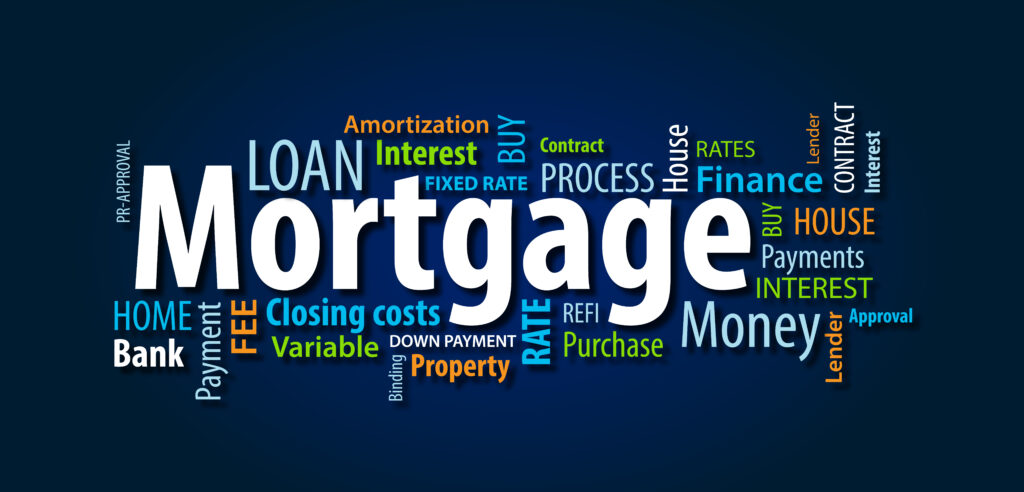
Understanding mortgage terms is crucial when navigating the home buying process. Here are some of the top mortgage-related terms you should be familiar with:
Mortgage: A legal agreement that allows a lender to take possession of a property if the borrower fails to repay the loan as agreed.
Interest Rate: The percentage of the loan amount that a lender charges as interest over the life of the loan.
Principal: The original amount borrowed, excluding interest and other fees.
Amortization: The process of gradually paying off the loan through regular payments, which includes both principal and interest.
Down Payment: The initial payment made by the homebuyer toward the purchase price, typically a percentage of the home’s total cost.
Loan Term: The length of time over which the mortgage is repaid, often 15, 20, or 30 years.
Fixed-Rate Mortgage: A mortgage with an interest rate that remains constant throughout the entire loan term.
Adjustable-Rate Mortgage (ARM): A mortgage with an interest rate that can change periodically, usually after an initial fixed-rate period.
Credit Score: A numerical representation of a borrower’s creditworthiness, which lenders use to assess the risk of lending.
Pre-Approval: A lender’s written commitment to provide a borrower with a specific loan amount, subject to certain conditions.
Closing Costs: The fees and expenses associated with finalizing the mortgage and transferring ownership of the property.
Escrow Account: An account where a portion of each mortgage payment is held to cover property taxes and insurance payments.
Private Mortgage Insurance (PMI): Insurance that protects the lender if the borrower defaults on the loan and has a down payment of less than 20%.
Appraisal: An assessment of the property’s value by a qualified appraiser to determine its market worth.
Title Insurance: Insurance that protects the buyer and lender from any defects or issues with the property’s title.
Deed: A legal document that transfers ownership of the property from the seller to the buyer.
Closing Disclosure: A document provided to the borrower before closing, detailing all the final costs and terms of the mortgage.
Homeowners Association (HOA): An organization that manages common areas and enforces rules and regulations in a planned community or condominium complex.
Origination Fee: A fee charged by the lender to cover the cost of processing a mortgage application.
Interest-Only Mortgage: A type of mortgage where the borrower pays only the interest for a specific period, typically followed by higher payments to cover both principal and interest.
Loan-to-Value Ratio (LTV): The ratio of the loan amount to the appraised value of the property, used to determine risk and loan eligibility.
Debt-to-Income Ratio (DTI): A borrower’s total monthly debt payments as a percentage of their gross monthly income, used to assess affordability.
Closing Date: The date on which the sale of the property is finalized, and ownership is transferred from the seller to the buyer.
Points: Fees paid to the lender to lower the interest rate on the mortgage, often referred to as discount points or origination points.
Underwriting: The process of evaluating a borrower’s creditworthiness and determining whether to approve or deny a mortgage application.
These mortgage terms provide a foundation for understanding the mortgage process, but there are many more specific terms and concepts to explore when securing a home loan. It’s advisable to work closely with a mortgage lender or advisor who can provide guidance and explanations throughout the process.